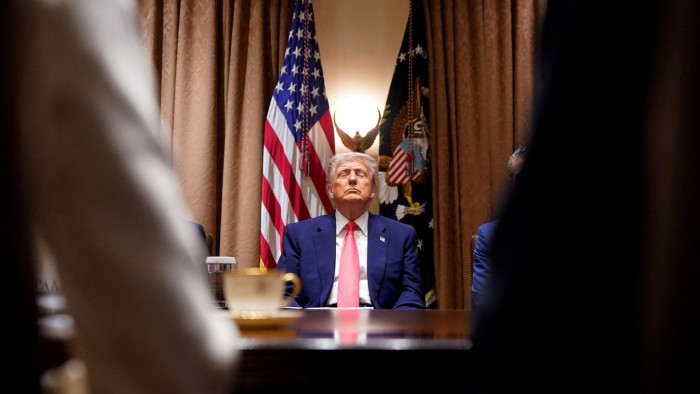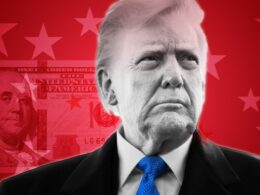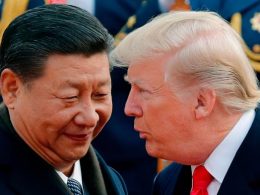Unlock the White House Watch newsletter for free
Your guide to what the 2024 US election means for Washington and the world
The writer is an FT contributing editor, chief economist at American Compass and writes the Understanding America newsletter
No one doubts at this point President Donald Trump’s intention to tear down the international economic system that the United States has fostered since the end of the second world war. The confusion is about what might replace it. Comments from the Trump administration have offered some clues as to the potential contours of a new US-led economic and security alliance, but the biggest of open questions concerns Europe.
In February, secretary of state Marco Rubio gave an answer that provides the best starting point for understanding the Trump administration’s actions. “It’s not normal for the world to simply have a unipolar power,” he observed. “That was an anomaly. It was a product of the end of the cold war, but eventually you were going to reach back to a point where you had a multi-polar world.”
This belief that American hegemony has ended is foundational to the “New Right” view that has become increasingly influential in Washington. As Elbridge Colby, who was confirmed this week as the Pentagon’s policy chief, wrote in 2021: “For the last generation, one nation has wielded unmatched military power [and] bent the international financial system to its will.” For its allies, “America’s tutelage was easy, its burden light — certainly compared to history’s other real or aspiring hegemons. Those days have come to an end.”
In the new multi-polar world that would supplant the “liberal world order” of the post-cold war decades, the US would lead an economic and security alliance anchored by the major market democracies, while conceding to China a sphere of its own. Participation in the US-led bloc would require compliance with certain demands, chief among them balanced trade, with no country running a large surplus or deficit at the expense of the others; each member taking the lead in providing for its own security; and a joint commitment to exclude China from their markets.
This is a fair deal and one that any market democracy should prefer to falling into China’s orbit. Mexico and Canada, which faced the initial brunt of US actions, and are now engaged in an accelerated renegotiation of the North American trade agreement, would inevitably be core members alongside the US. As China’s chief regional rivals, Japan and India also seem obvious participants — indeed, India’s trade minister has already indicated that negotiations with Washington are “moving in the right direction” while Japan appears poised to move to the head of the line for its own talks.
But whither Europe? And here, largely speaking, Europe means Germany. To address trade imbalances, Germany would have to abandon its export-intensive economic model and accept the need to boost domestic consumption, buy more from the US and send more of its producers to set up shop there. But its economy has been in recession since 2023. Germany would also need to take the lead in rebuilding the continent’s military power and squaring off against Russia. For all its rhetoric on Ukraine, the German army is somehow less battle-ready than on the eve of the Russian invasion, and also shrinking.
Rather than confront the threat from heavily subsidised Chinese competitors, the German automakers have generally argued against any trade protection, for fear that retaliatory action in China would put their short-term profits at risk. Instead they are encouraging Chinese firms to begin manufacturing within Europe’s borders. Mercedes is now one-fifth owned by the People’s Republic.
The US strategy relies upon its most valuable allies preferring its partnership to China’s, even under a revised arrangement that asks more of them. In most cases, that seems a safe bet. But with Europe the question is more acute. From its declining population and self-sabotaging energy policies to its crisis of democratic legitimacy and lack of innovative technology, the continent’s strategic value and leverage is at a low ebb. As is its will to make hard choices, accept sacrifices and resist the short-run allure of access to the Chinese market.
This was the subject of vice-president JD Vance’s controversial remarks at the Munich Security Conference in February. “When I look at Europe today, it’s sometimes not so clear what happened to some of the cold war’s winners,” he lamented. On Wednesday, Treasury secretary Scott Bessent warned European leaders that moving towards China “would be cutting your own throat”. On Thursday, the EU began discussions on lowering barriers to Chinese electric vehicles.
If the US puts Europe to the test, will it pass? If Europe tries to call what it perceives to be a bluff, will the Americans just walk away? Choosing China would seal its fate and ensure continued decline.
Source link









